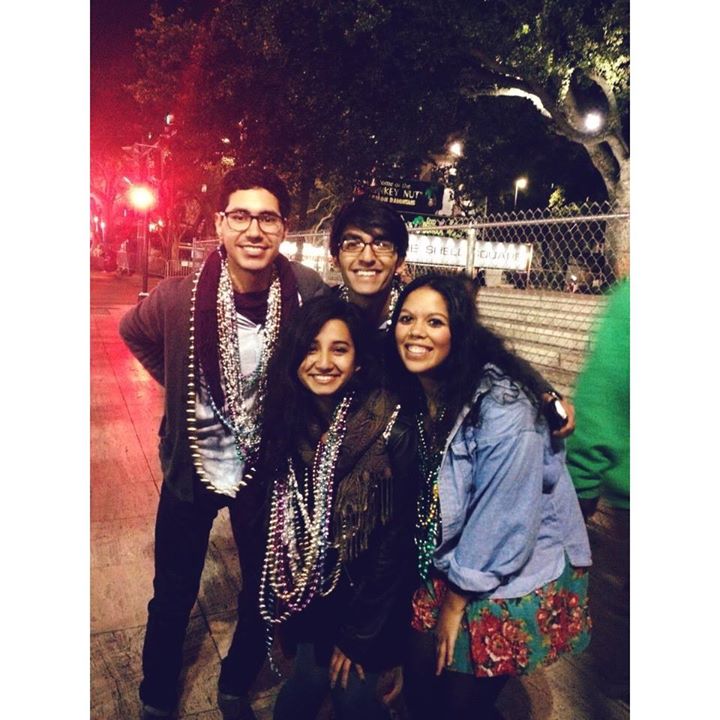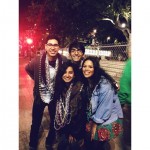Pre-exchange:
On the 28th of December 2015 I embarked upon a 5-month semester abroad at the University of Georgia in the United States. It was going to be the longest time I had spent away from home and I was very excited, but also very nervous. The last few weeks before my departure were marked by the bureaucratic nightmare of having to replace a stolen passport as well as applying for a visa. In recent years, applying for an American visa has become a less intimidating process and, with the support of the host institution, it is highly unlikely that one should experience any problems with the application. The application is filled in online and once completed, an in-person appointment at the Embassy (in Tokai) will need to be booked. During the in-person appointment, a consular official will ask you a few questions, just to confirm the information you have already submitted and will then either approve or deny the application. They are also extremely prompt, and one can expect to receive the visa about two days after the appointment.
In the months after hearing about my selection for exchange, my preparation involved some fundraising and lots of paperwork. Bank statements, learning agreements, course selections and a myriad of application papers were the order of the day. Luckily, all of my professors were very supportive of my exchange and were readily available to discuss all my options with me and what impact, if any, my semester abroad would have on my future academic prospects. I think the most important thing when gathering such paperwork is just to keep everything filed and organised! Being able to transfer marks between institutions relies on keeping all of these documents accessible and in order. Being able to travel during Spring Break (should you want to go to a different country such as Mexico) relies on these documents being accessible and in order. Trust me, I learned the value of a piece of paper the hard way when I was ‘delayed’ for three and a half hours upon arrival at Atlanta airport because I had a copy, and not the original, of an immigration document.
Finally, when it comes to packing, take only what you need and make a list of things (such a toiletries, laundry detergents or varsity supplies) that you can you can buy upon arrival. This way you save space, and often money, especially if you buy in bulk with other international students.
During my stay at Georgia:
Due to the fact that Athens is a student town just like Stellenbosch and I was housed on campus, it was very easy for me to get involved. I was a member of the African Union, Amnesty International and participated in many actions and conferences. This was also great way for me to meet new people and to travel around the country as student conferences often only require a small conference fee to subsidise accommodation and food they provided. I was also fortunate enough to have a few familiar faces nearby as some of the UGA students who attended a programme at Stellenbosch University in 2013, and whom I had befriended, were still in the area and/or at UGA. Through these connections I was able to be picked up from the airport (after a more than 3 hour “delay” in immigration), driven to Athens (which is almost 2 hours away from the Atlanta airport) and taken on many adventures throughout the semester.
I found the American academic system to be extremely different from ours, but the differences were ones which were easy to adjust to – except the fact that classes can run until 7pm. At UGA, most modules follow a continuous-assessment based approach, meaning that students are tested more often and on smaller sections of work. Tests are often non-cumulative and final exams are weighted only slightly more than other assignments – the most heavily weighted exam I wrote was weighted at 30%, and that was considered a heavy load by the other students. Contrasted with our South African exams which are usually weighted at 60%, these tests were far less stressful. The tests were also written during class periods, with no ‘formal’ exam procedure followed – strikingly different from our procedures in RSA.
Classes at UGA at an undergrad level are also far smaller. My largest class comprised of 80 students and my smallest, 12. The class size allowed for an amazing level of interaction which I was not accustomed to seeing in my own classes back home; we got to know our lecturers on a far more personal level. On the other hand, due to the level of interaction with one’s professor, the enjoyment of the class depended far more on the professor as an individual. The professors enjoy a large amount of autonomy when it comes to the layout of their courses and therefore the same course may be taught and examined in a completely different way depending on the professors’ choices.
As one of many international students, I became friends with students from all over the world simply due to the fact that we were all exchange students. We really built up a great sense of community and served as a makeshift family for the five months we were together. Due to small class sizes, it was also less intimidating for me to make friends during class and in this way I was able to interact with local students too. I am confident that the friends I have made will remain friends for many years to come. The network I was fortunate enough to be a part of means that I can comfortably travel to any continent in the world (short of Antarctica) and have a home – something that will never cease to amaze me.
Post-exchange:
Due to the fact that UGA’s semester began a month before Stellenbosch’s semester, I also then completed my semester a month earlier than my Maties back home. This meant that upon my return on May 20th, I was immediately on holiday. I think this has helped my transition as this eases me back into the system in a natural manner – I will begin my final semester of undergrad as I would have done had I not gone abroad.
I will admit, I was not all that convinced that the USA had anything to show me that I did not already know about it. You see, when a country dominates mainstream global culture the way the US does; one feel can easily assume that there is nothing much “new” to see. American music, American films, American news… they are just music, films, news – nothing different from back home. This does not mean that I did not experience any ‘culture shocks’, but these shocks came in the form of minor differences rather than entirely foreign practices. This allowed me to focus on what really mattered: the people. Through these relationships, I saw and lived the nuanced version of America – the one we do not always see on TV. Sure, bottomless fries are a thing, but so is the commitment to organising against the cruel treatment of workers (both locally and abroad) through organisations like Solidarity Ignite. Sure, Georgia is considered to be less than progressive, but Athens is home to Church, one of the most amazing gay bars I have been to! The United States, much like South Africa, is not perfect, but it’s definitely moving forward; and its people are the driving force.
While I missed my family & friends, my mountain, my sweet chili sauce and ‘South Africanness’ in general; Athens and its people wriggled their way into my heart. Although there are far too many names to mention, there were those who made my exchange experience an incredible one without even realising it. From roadtripping to New Orleans and getting stuck on the I-85 in the middle of nowhere to lunchtime conversations in the dining hall; from strategically planning whose room to invade to ensure we never missed an episode of Game of Thrones to those who were there to guide me through the maze that is Walmart… Every gesture of kindness means more when one is away from one’s regular support system.
This incredible exchange experience, which was expertly facilitated by the PGIO, has only made me more determined to complete more of my studies abroad. If one is able, a summer school or semester abroad is an opportunity I would encourage all students to consider.
But, be warned: who you are when you leave will – hopefully – not be who you are when you return.




